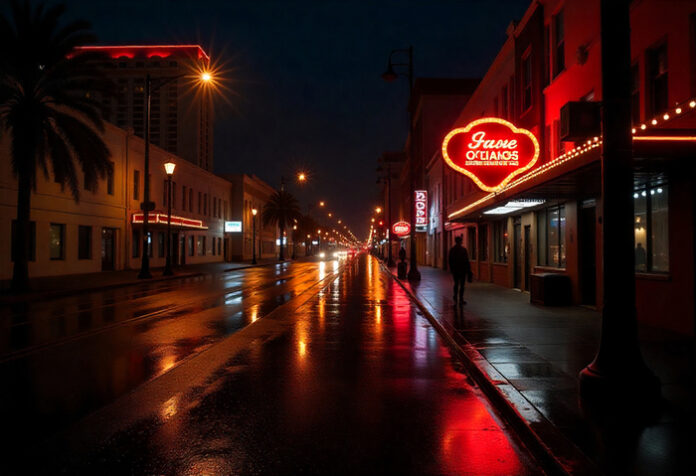Southern Nevada’s Travel Industry Struggles in 2025
A Troubling Reversal in Tourist Numbers
Las Vegas, often hailed as the entertainment capital of the world, is facing unprecedented challenges as its tourism industry shifts gears in 2025. Once a beacon of resilience and recovery, the region is experiencing a notable decline in visitor numbers and airport traffic, which has dire implications for both the local economy and hospitality sector.
The Initial Boom and Subsequent Decline
Following a remarkable rebound from the pandemic-induced decline, Las Vegas saw record visitor counts in 2024, with statistics ballooning to over 41.6 million. Travelers flocked back, drawn by a mix of large-scale events and the reestablishment of international flights. However, as we reach mid-2025, the once-unstoppable upward trend seems to have stalled, with a more than 7% drop in visitor counts compared to the same timeframe in 2024. Analysts warn this is not a fleeting issue; it’s a deepening concern that threatens to undo recent economic recovery gains.
Airport Traffic: A Mirror to Wider Trends
The decline is starkly reflected at Harry Reid International Airport, the region’s primary air traffic hub. In June 2025, the airport recorded a worrying 10% drop in international passenger traffic, exacerbated by a 4% overall decline when combining both domestic and international travelers. These figures signal not only fewer arrivals but also a reduction in visitor spending throughout the city’s resorts and attractions.
Economic Pressures Affecting Travel Plans
Several economic factors are converging to impact travel plans negatively. Persistently high inflation and rising interest rates in the U.S. are leading many families to tighten their belts. Consequently, discretionary spending on travel and entertainment is often the first to go.
Internationally, restrictive immigration policies and complicated visa processes are making the U.S. less appealing to overseas tourists. Strained diplomatic relations, particularly with Canada and parts of Europe, have further diminished the city’s allure for foreign visitors.
Effects on the Hospitality Workforce
Las Vegas’s hospitality sector—a crucial driving force of the economy—is grappling with the fallout from dwindling tourist numbers. Hotels and resorts have begun to scale back on staff hours and hire less frequently, affecting employees in housekeeping, food services, and entertainment. The uncertainty looms large, as many workers now face a precarious employment landscape, which could lead to broader disruptions if the trend does not shift soon.
Local Businesses Under Pressure
The decline in tourism extends beyond the glittering hotels and high-stakes casinos. A vast ecosystem of small businesses—from tour operators to convenience stores—relies on a steady flow of visitors to thrive. With fewer tourists frequenting the Strip, spending has plummeted, affecting sales tax revenues and hindering overall economic growth in Clark County.
Economists have issued warnings: if this stagnation persists, the repercussions may cascade into real estate and public services, undermining the recovery seen after 2021.
A Glimmer of Hope on the Horizon
Despite the current downturn, hope remains among industry stakeholders who believe that upcoming seasons may provide some relief. The fall and winter months typically usher in an influx of convention-goers, sports fans, and international travelers, particularly as Las Vegas continues to position itself as a premier destination for global events.
High-profile events, such as conventions, music festivals, and sports championships, offer the potential for revitalization. However, any sustained recovery will hinge on broader economic improvements and more favorable conditions for international travel.
Navigating an Uncertain Landscape
For Southern Nevada, the stakes are high. Tourism is a linchpin of the local economy, influencing not just employment but also infrastructure investments. A prolonged downturn may require a reevaluation of long-term strategies, including efforts to diversify the economy, adapt to changing traveler preferences, and attract international visitors in a competitive global landscape.
As 2025 evolves, Las Vegas stands at a crossroads, finding itself balancing cautious optimism with the sobering realities of declining tourism and tightening budgets. The resilience of the local community will play a vital role in determining whether Southern Nevada can overcome its current challenges and reestablish itself as a premier global destination.
